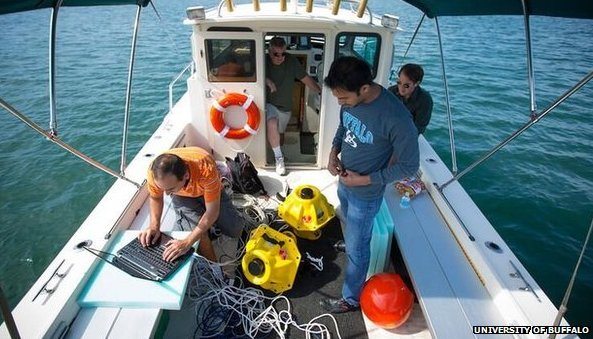Research Team Working On “Underwater WiFi” To Create “Deep Sea Internet”

The BBC reports that researchers are undertaking testing on “underwater WiFi” which they are using to make a “deep sea internet”. The research team are from the University of Buffalo in New York and they believe the technology would be useful for detecting Tsunamis and creating more reliable warning systems. The tests were trialled at Lake Erie, near Buffalo, and involved the research team dropping two 18kg sensors into the water which they then used a laptop to transmit information to and from.
The aim of the project is to create an agreed standard of underwater communications which uses sound waves instead of radio waves to transmit data. Radio waves found in normal WiFi can function underwater but are severely crippled by it so sound waves are a much better option (as shown by dolphin and whale communication for example). Underwater communications are not a new thing and the US National Oceanic and Atmospheric Administration (NOAA) uses acoustic waves to send Tsunami data but due to infrastructural differences that data cannot be shared quickly with the U.S navy for example. That is where the University of Buffalo team step in as they aim to create a universal standard so that everyone can communicate using the same “Underwater WiFi” standard.
“A submerged wireless network will give us an unprecedented ability to collect and analyse data from our oceans in real time,” said Tommaso Melodia, lead researcher. “Making this information available to anyone with a smartphone or computer, especially when a tsunami or other type of disaster occurs, could help save lives.”
Image courtesy of the BBC








